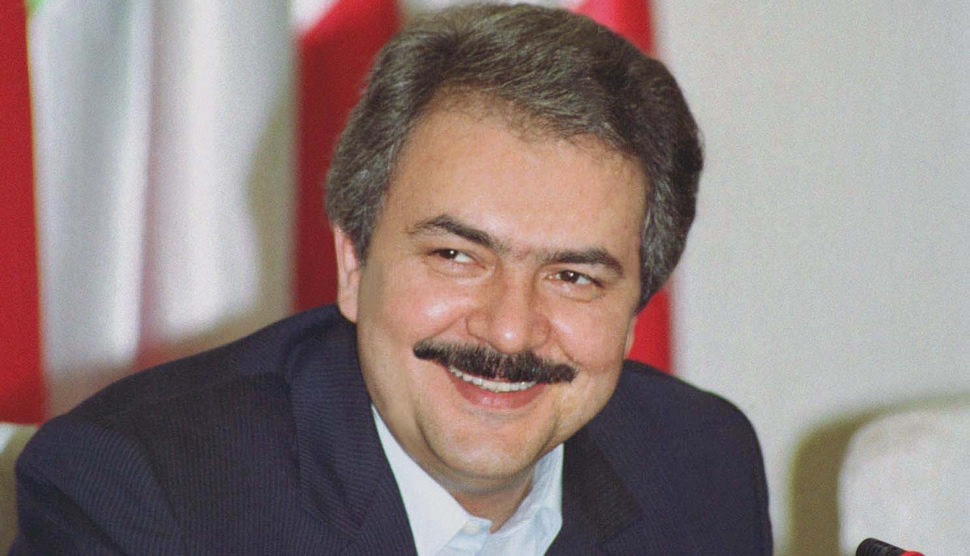
Forty-three years ago, on this day, January 20, 1979, the people of Iran forced the Shah’s dictatorship to release the last group of political prisoners. Most of these prisoners had been sentenced to life imprisonment.
Their families, activists, and citizens were concerned about Shah Mohammad Reza Pahlavi, the latest king of Iran, purging jails from political prisoners as revenge and response to people’s anti-regime protests. In this context, thousands of people were rallied outside known prisons such as Qasr and Evin in Tehran to prevent the dictator’s retaliation.
To ease public anger, authorities eventually accepted demonstrators’ demand to talk face-to-face with the prisoners’ representative. Indeed, people no longer believed monarchic officials’ statements and promises, seeking to ensure prisoners’ health and safety via one of their jailed loved ones.
In this respect, authorities suddenly referred to Massoud Rajavi, the People’s Mojahedin Organization of Iran (PMOI/MEK) leader, and transferred him outside the ward. This incident severely raised the concerns of other MEK members, including Mousa Khiabani, Rajavi’s deputy.
Massoud Rajavi Spoke with the People for the First Time
“We were concerned about the last approach of Shah and [the harrowing Intelligence and Security Organization] SAVAK against Massoud, particularly because he was the only survivor of the organization’s first-generation,” one of the former political prisoners Ali Khodaeisefat later narrated.
Outside the prison, demonstrators had taken aback by seeing MEK leader Massoud Rajavi on the Qasr prison’s balcony. “At the last hour ahead of starting the martial law, we suddenly found Massoud Rajavi on the prison’s patio. One of the government-linked individuals stepped forward, saying, ‘Your Majesty has granted pardon to…;’ however, Rajavi seized the microphone and said, ‘No one granted us pardon, these people have freed us,’” narrated one of those who gathered outside the prison.
Rajavi then humbly admired people’s ongoing anti-Shah protests and those who spent days outside the prisons to free political prisoners. He mentioned that all political prisoners were innocent and were sentenced to outlaw punishments for their freedom-seeking activities.
“I find no phrase for appreciating you,” Rajavi addressed the audience. “Indeed, we all owe you this freedom to you, not anyone else or any special group.” Later in an interview with Asia weekly, Rajavi recalled that night.
“A significant crowd has gathered outside the Qasr Prison. They were chanting and calling my name while I could not understand what was going on because I was a political prisoner just like others,” Asia quoted Rajavi as saying.
“The prison warden was terrified, asking me to go to the prison’s roof and speak with the people. ‘All political prisoners will be freed,’ the warden urged me to announce. I surprisingly went to the roof. Suddenly I found myself in an ocean of flowers from the people.”
“I asked the reason for that applause while the slogans became more glorious. ‘Long live MEK,’ people were chanting, and I responded to them, ‘Long live the people,’” Rajavi explained.
An hour later, around 9:00 pm and in coincidence with the beginning of the martial law, authorities released the remaining 162 political prisoners, consisting of leaders of the MEK such as Rajavi, Khiabani, and Ashraf Rabiei, leaders of the Organization of Iranian People’s Fedai Guerrillas, and other prominent individuals.
After the Release
After releasing the last group of political prisoners, the people took them to the judiciary, where prisoners’ families had held a strike.
People’s Will Released Political Prisoners
“Following U.S. President Jimmy Carter’s human rights policy, Shah and Savak had been forced to stop executions and torture,” another former political prisoner said. “Since September 1978, the monarchic dictatorship began to release thousands of political prisoners. However, it still disobeyed to free several activists although they had passed their terms and some of them had been held two additional years.”
On December 23, 1978, the families referred to the judiciary, demanding officials release all political prisoners while then-Prime Minister Gen. Gholam Reza Azhari had announced martial law. “Free all political prisoners, including those who have falsely been designated as security inmates by the regime,” families asserted in their statement.
Two inmates died in a fire incident at Mashhad Prison in northeastern Iran four days later. Many people speculated that the regime deliberately sought to eliminate political prisoners in such accidents. Though, people expressed their outrage and continued protest.
On January 19, 1979, people began their strike at the judiciary when they grasped that the regime would not respond even to pressure and firmness. And their strike led to the freedom of all political prisoners a day later.
Prisoners and Families Celebrated the Freedom
Released prisoners received a warm welcome from the audience, and people’s celebration took hours despite the martial law. Several released prisoners, along with their families and friends, spent the night patrolling the streets, visiting the city, and speaking with their relatives and partners. Regardless of their political beliefs, the people of Iran remember January 20th as a landmark in their anti-Shah struggle.